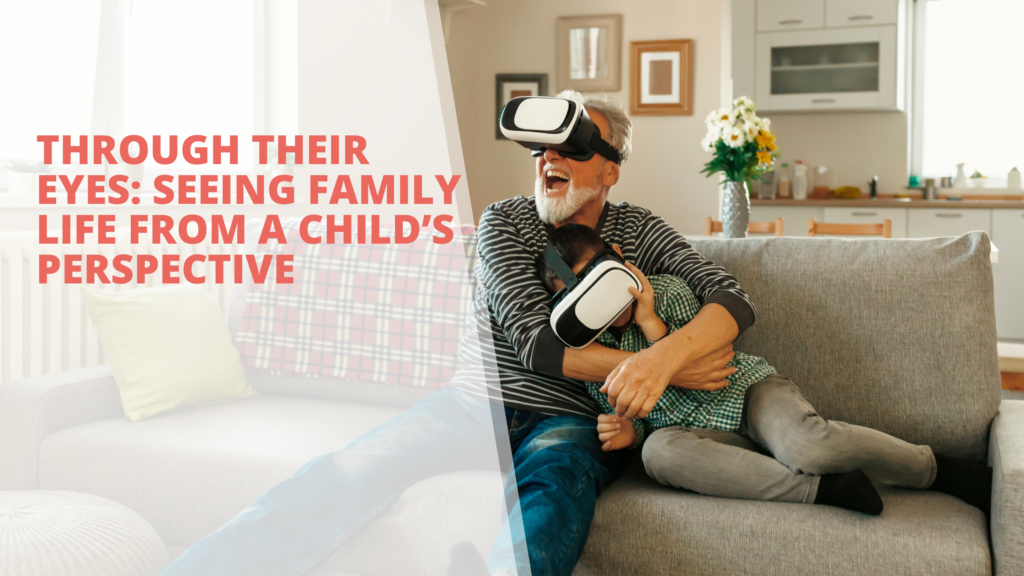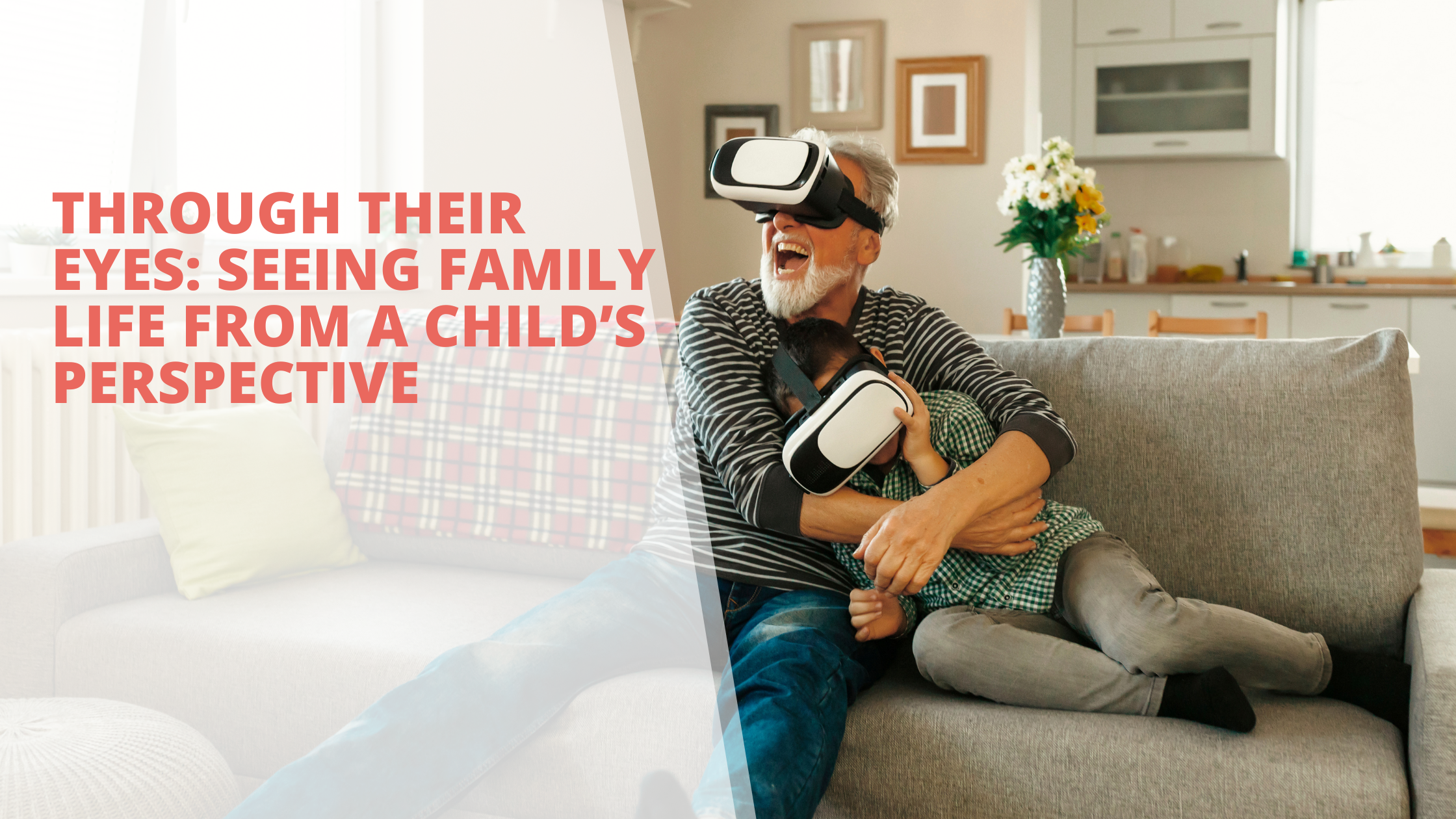
What if we saw our homes the way our children do?
What if instead of seeing a simple chore, we saw a confusing demand right in the middle of a game that mattered deeply?
What if instead of dinner being a break in the day, it was an interruption just when you’d found the rhythm of something you loved?
What if instead of hearing “can you read to me?” as another task, we heard it as “can we connect in this moment?”
As parents, caregivers, and guides, we often see the big picture: routines, responsibilities, healthy habits, and ticking off the mental checklist of “good parenting.” But when was the last time we paused to imagine what these moments feel like from our child’s side of the table?
Let’s Try It for a Moment.
- Being asked to do a chore might feel like being pulled away from the only thing that gave them a sense of freedom that day. It might feel unfair, jarring, or simply confusing.
- Being called to the dinner table might feel like stepping into a space they don’t quite know how to belong in especially if it’s tense, silent, or rushed.
- Having a parent finally sit and listen to them read might feel like the greatest honour — or the most nerve-wracking test, depending on how it’s framed.
- Inviting you to play a sport or an online game isn’t just play. It’s their way of saying: “Be in my world. Know me.”
“When a child asks you to play, they’re not just inviting you into a game they’re inviting you into their world.”
When we begin to ask ourselves, “What might this feel like from their side?” something remarkable happens. Our voices soften. Our timing shifts. Our urgency calms. We meet our children not with control, but with compassion.
Empathy Begins at the Table
At The Table Talk Project, we often talk about how the dinner table is more than a place to eat, it’s a place to see each other. Not just physically, but emotionally and relationally.
If we bring this lens the child’s perspective into our mealtimes, chores, homework routines, and digital downtime, we begin to raise children who feel understood. And children who feel understood are more likely to speak, connect, and grow into adults who do the same.
“Children who feel understood are more likely to speak, connect, and grow into adults who do the same.”
What Needs to Change?
- Could we slow down our requests?
- Could we offer more context instead of commands?
- Could we honour the sacredness of their play, their space, their fears, their feelings?
The shift begins with a single question:
“What does this moment look like through their eyes?”
“The question that changes everything: ‘What might this feel like for them?’”
Here is your call to Action
This week, we invite you to try one moment of parenting with this lens. At the dinner table, in the car, during a bedtime story – pause and ask:
“If I were them… what might I be feeling?”
Let us know how it goes. Start the conversation at your table, and tag us @thetabletalkproject
Because empathy begins one question at a time.

